In Western minds, jinn, or djinns, or genies – are Disney figures drawn out of the Orient’s mythical past. But belief in jinns as living creatures with supernatural forces thrives in modern times too.
According to Wikipedia, a survey undertaken by the Pew Research Center in 2012 shows that “…at least 86% in Morocco, 84% in Bangladesh, 63% in Turkey, 55% in Iraq, 53% in Indonesia, 47% in Thailand and 15% elsewhere in Central Asia, Muslims affirm the existence of jinn. The low rate in Central Asia might be influenced by Soviet religious oppression.”
The majestic jinni below was carved into the palace wall of Assyrian King Sargon II, 722-705 B.C.
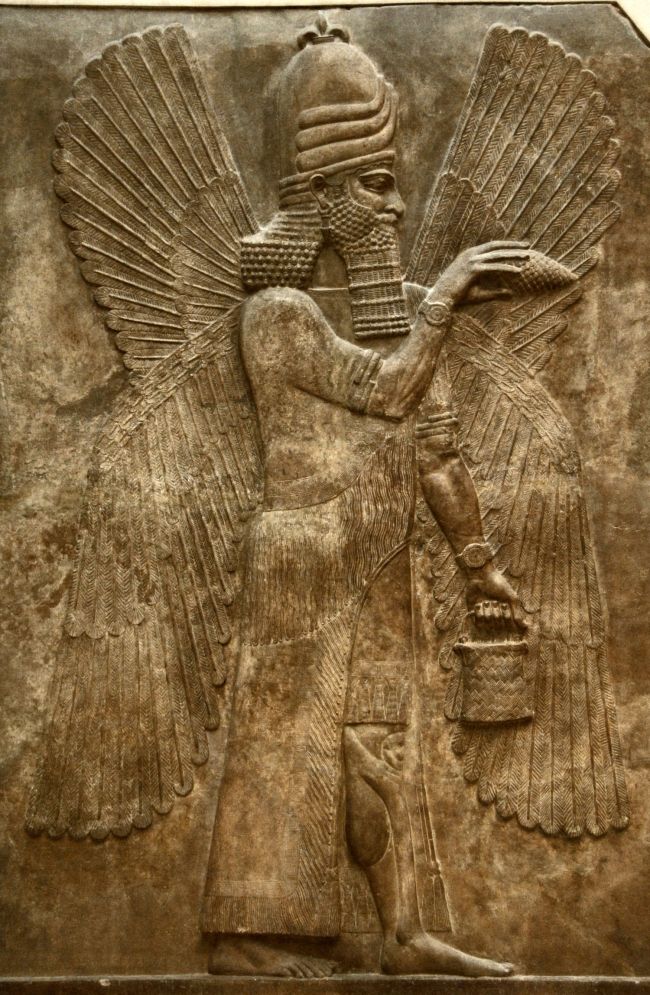
So powerful is the belief that in Saudia Arabia, for example, sorcery and dealing with jinn is punishable by death.
It’s thought that jinn are figures from pre-Islamic Arabia which Islam absorbed. They are not worshiped, which may be why belief in them is acceptable to Muslims. Jinn are said to be made of fire or of air, and are neutral in character until they chose to follow Allah, or not. Although able to live untold years, they can die, and share other human characteristics, such as the need to eat, drink, and mate. Jinn can mate with humans, too. A modern story by A.S. Byatt, “The Djinn In The Nightingale’s Eye,” draws on this belief.
They are invisible, but can manifest physically in human or animal form, or as a frightful blend of both, or as fire. Lonely, deserted places are believed to be where jinn are found. Jinn haunt ruined houses, the empty desert, and maybe even public places like this deserted train station below.
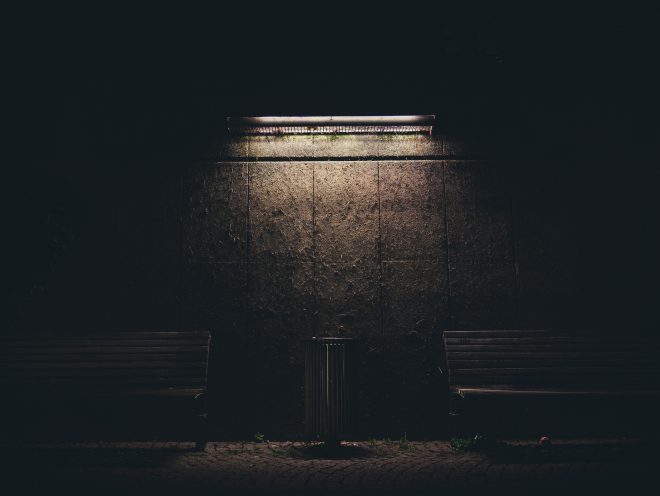
Epilepsy, narcolepsy, and mental and physical illness are attributed to the malicious workings of jinn, as well as natural phenomena like sandstorms.
Demons are a different class of creature in the hierarchy of supernatural beings. They’re believed to corrupt the hearts of the faithful and lead them astray. This weaken the human spirit and makes it easy for jinn to harm or possess the person.
Not all is bad with jinn, though. A sympathetic one may be helpful. A powerful magician can subdue a jinni to his will and make him do or get things. The 16th-century Persian miniature below shows jinn working to build a wall for Alexander the Great.
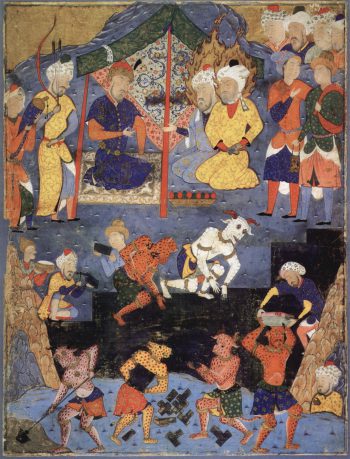
Humans and jinn may come to an agreement, where a jinni will do magical favors for someone in exchange for something he desires. In many stories, the jinni grants three wishes in exchange for freedom from bondage.
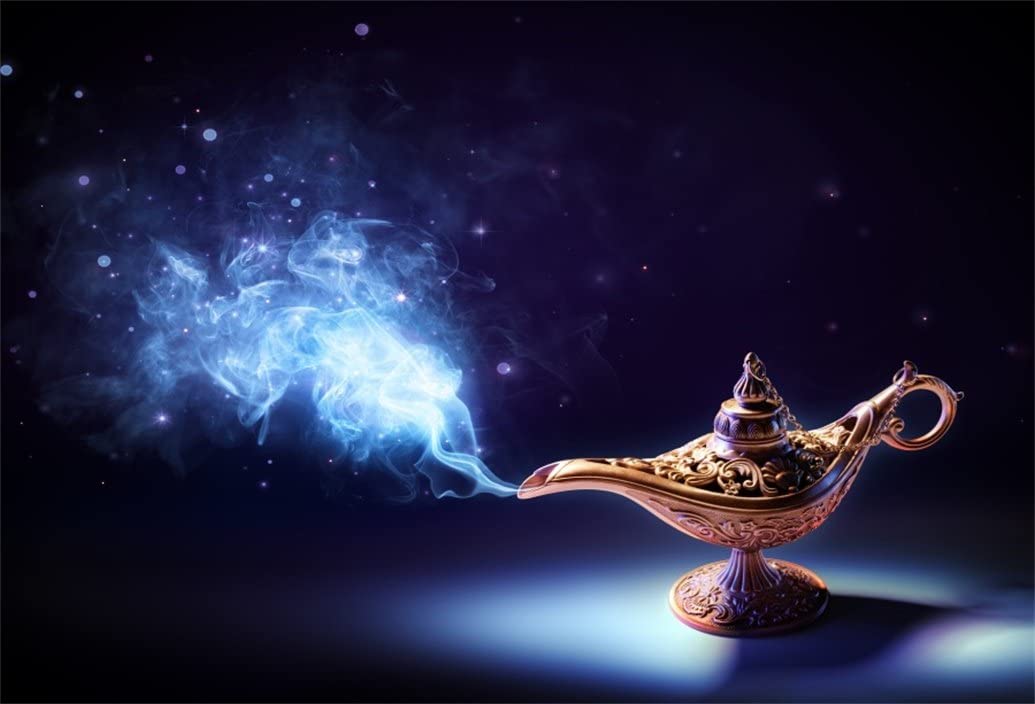
There are many stories where humans triumph over adversity with the help of friendly jinn – stories that have been handed down over centuries, and are still told.
Mohammad wrote throughout the Koran that adherence to the law, and reciting specific prayers at prescribed times, averts evil spirits. More advice: keep wudu (ritual hygiene), because jinn dislike cleanliness. Eating seven dates first thing in the morning also does it. Jinni are afraid of iron, so a magician can weaken and dominate a jinni by sticking a needle through the jinni’s robes. The belief that iron averts evil spirits is shared around the world. Think of horseshoes hung near the entrance to rustic homes, barns and stables.

The unseen jinn are often depicted as frightful beings as seen in this work on display at Topkapi Palace, Istanbul, Turkey (Public domain)
The toilet is also considered a jinn-ridden place. Cast a protective barrier between yourself and the jinn haunting the lavatory: enter with the left foot first, and recite, “In the Name of Allaah; my ‘ilãh I seek refuge in You from the male and female devils.”
Wearing an amulet pouch like the one pictured below will guard you against the evil eye and jinn.
Stay pure in body and heart, pray at all prescribed times, and jinn won’t bother with you. They like sinners better.
Image of female genie trapped in a bottle by Mystic Art Design at Pixabay; Deserted station by Lucas Hartman at Pexels; 16th-century Persian miniature, amulet pouch via Wikipedia; Assyrian wall jinni via LifeScience

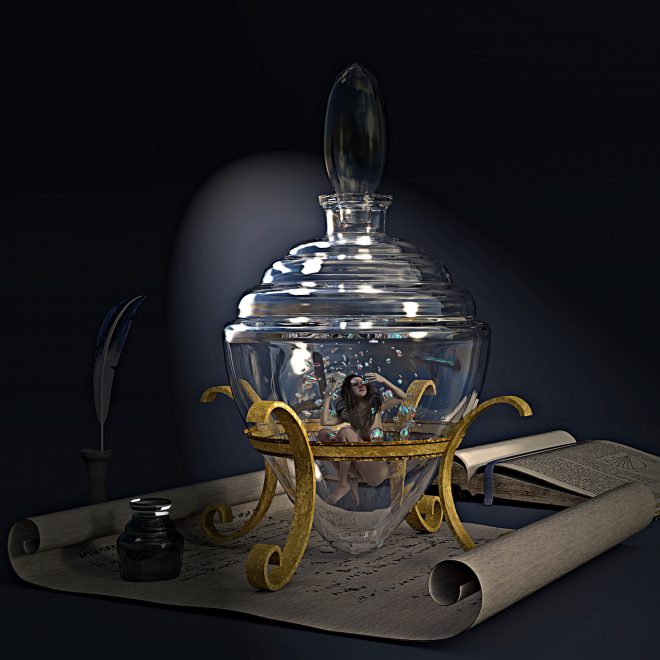


One thought on “Islam’s jinns and genies are not exactly Disney”
Comments are closed.